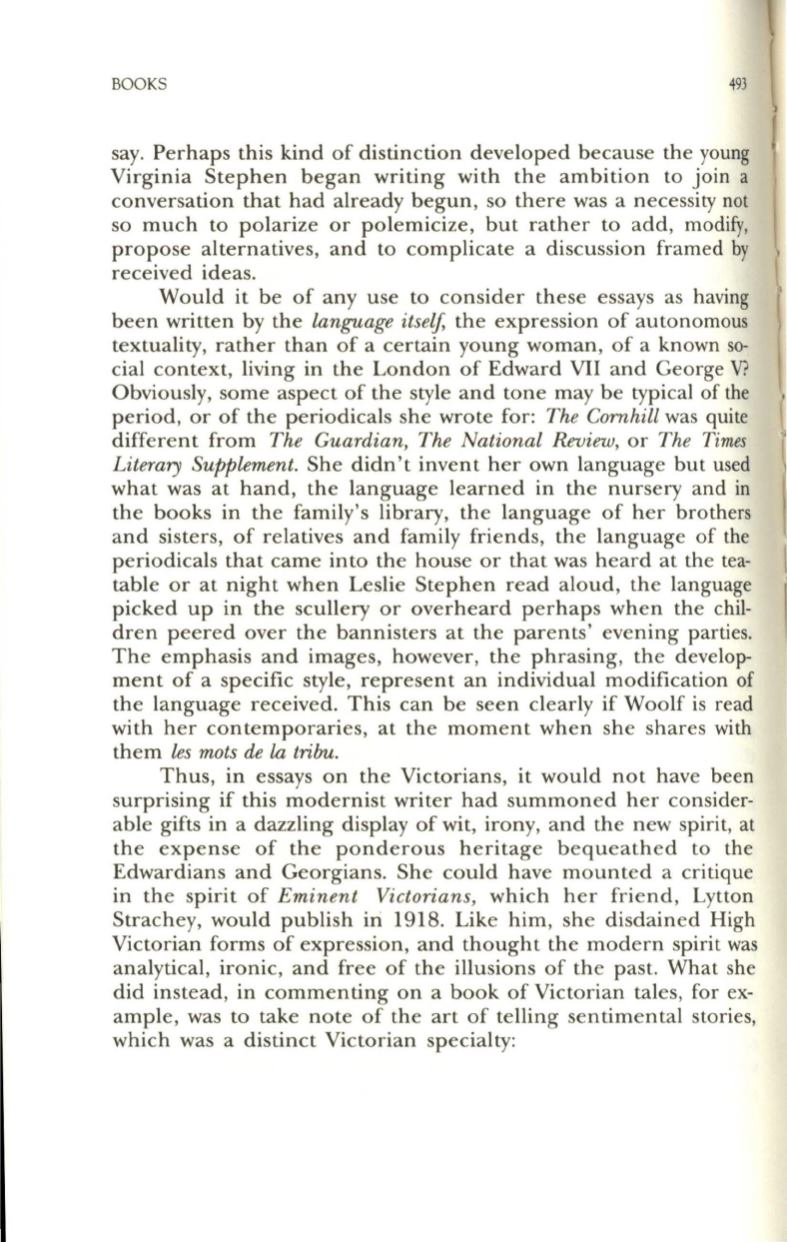
BOOKS
493
say. Perhaps this kind of distinction developed because the young
Virginia Stephen began writing with the ambition to join a
conversation that had already begun, so there was a necessity not
so much to polarize or polemicize, but rather to add, modify,
propose alternatives, and to complicate a discussion framed by
received ideas.
Would it be of any use to consider these essays as having
been written by the
language itself,
the expression of autonomous
textuality, rather than of a certain young woman, of a known so–
cial context, living in the London of Edward VII and George
V?
Obviously, some aspect of the style and tone may be typical of the
period, or of the periodicals she wrote for:
The Comhill
was quite
different from
The Guardian, The National Review,
or
The Times
Literary Supplement.
She didn't invent her own language but used
what was at hand, the language learned in the nursery and in
the books in the family's library, the language of her brothers
and sisters, of relatives and family friends, the language of the
periodicals that came into the house or that was heard at the tea–
table or at night when Leslie Stephen read aloud, the language
picked up in the scullery or overheard perhaps when the chil–
dren peered over the bannisters at the parents' evening parties.
The emphasis and images, however, the phrasing, the develop–
ment of a specific style, represent an individual modification of
the language received. This can be seen clearly if Woolf is read
with her contemporaries, at the moment when she shares with
them
les mots de
La
tribu.
Thus, in essays on the Victorians, it would not have been
surprising if this modernist writer had summoned her consider–
able gifts in a dazzling display of wit, irony, and the new spirit, at
the expense of the ponderous heritage bequeathed to the
Edwardians and Georgians. She could have mounted a critique
in the spirit of
Eminent Victorians,
which her friend, Lytton
Strachey, would publish iri 1918. Like him, she disdained High
Victorian forms of expression, and thought the modern spirit was
analytical, ironic, and free of the illusions of the past. What she
did instead, in commenting on a book of Victorian tales, for ex–
ample, was to take note of the art of telling sentimental stories,
which was a distinct Victorian specialty:


